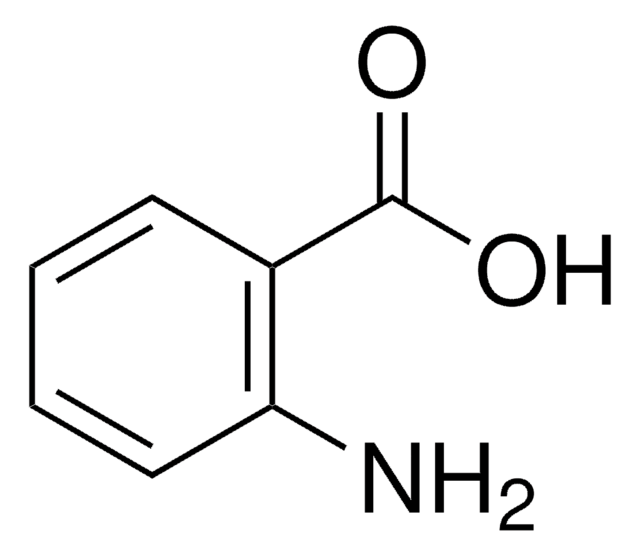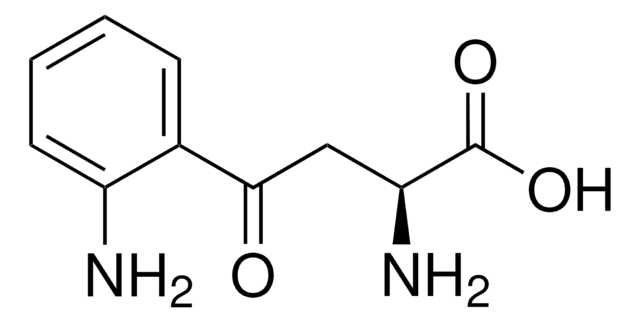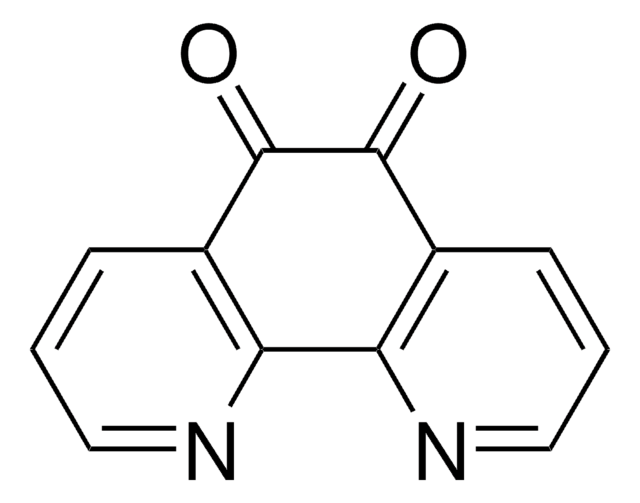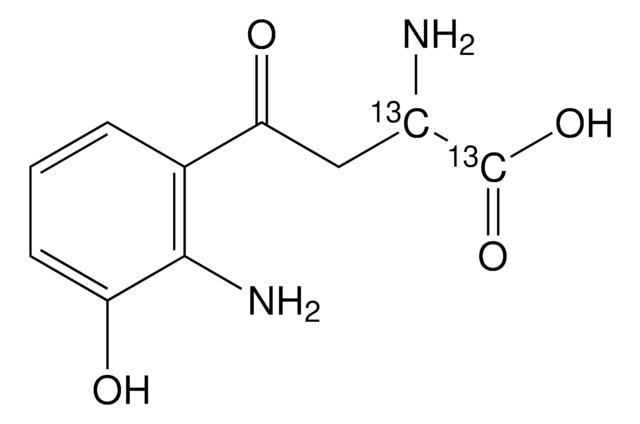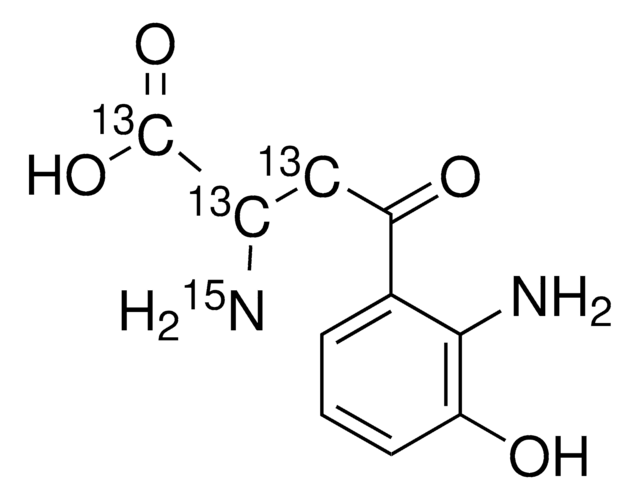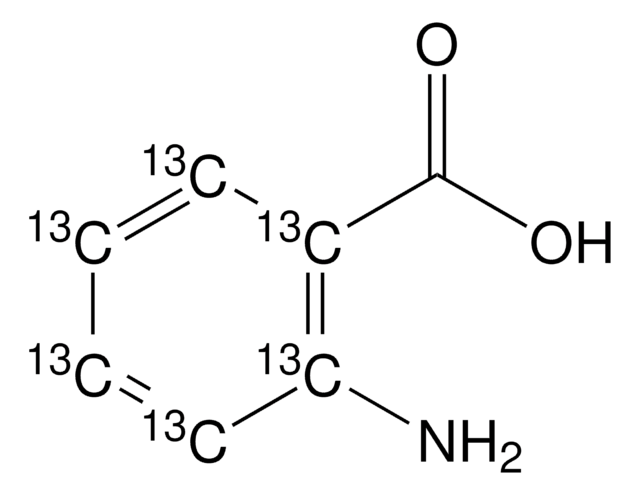148776
3-Hydroxyanthranilic acid
97%, for peptide synthesis
Synonym(s):
2-Amino-3-hydroxybenzoic acid
About This Item
Recommended Products
product name
3-Hydroxyanthranilic acid, 97%
Quality Level
assay
97%
form
solid
reaction suitability
reaction type: solution phase peptide synthesis
mp
240 °C (dec.) (lit.)
application(s)
peptide synthesis
SMILES string
Nc1c(O)cccc1C(O)=O
InChI
1S/C7H7NO3/c8-6-4(7(10)11)2-1-3-5(6)9/h1-3,9H,8H2,(H,10,11)
InChI key
WJXSWCUQABXPFS-UHFFFAOYSA-N
Looking for similar products? Visit Product Comparison Guide
General description
Application
<li><strong>Direct enzyme inhibition to mitigate quinolinic acid formation:</strong> Used to synthesize 2-amino-3-carboxymuconic semialdehyde (ACMS) during the kynurenine pathway of Tryptophan catabolism (Sanz et al., 2022).</li>
</ul>
signalword
Warning
Hazard Classifications
Acute Tox. 4 Dermal - Acute Tox. 4 Inhalation - Acute Tox. 4 Oral - Carc. 2 - Eye Irrit. 2 - Skin Irrit. 2 - STOT SE 3
target_organs
Respiratory system
Storage Class
11 - Combustible Solids
wgk_germany
WGK 3
ppe
dust mask type N95 (US), Eyeshields, Gloves
Choose from one of the most recent versions:
Certificates of Analysis (COA)
Don't see the Right Version?
If you require a particular version, you can look up a specific certificate by the Lot or Batch number.
Already Own This Product?
Find documentation for the products that you have recently purchased in the Document Library.
Customers Also Viewed
Our team of scientists has experience in all areas of research including Life Science, Material Science, Chemical Synthesis, Chromatography, Analytical and many others.
Contact Technical Service
